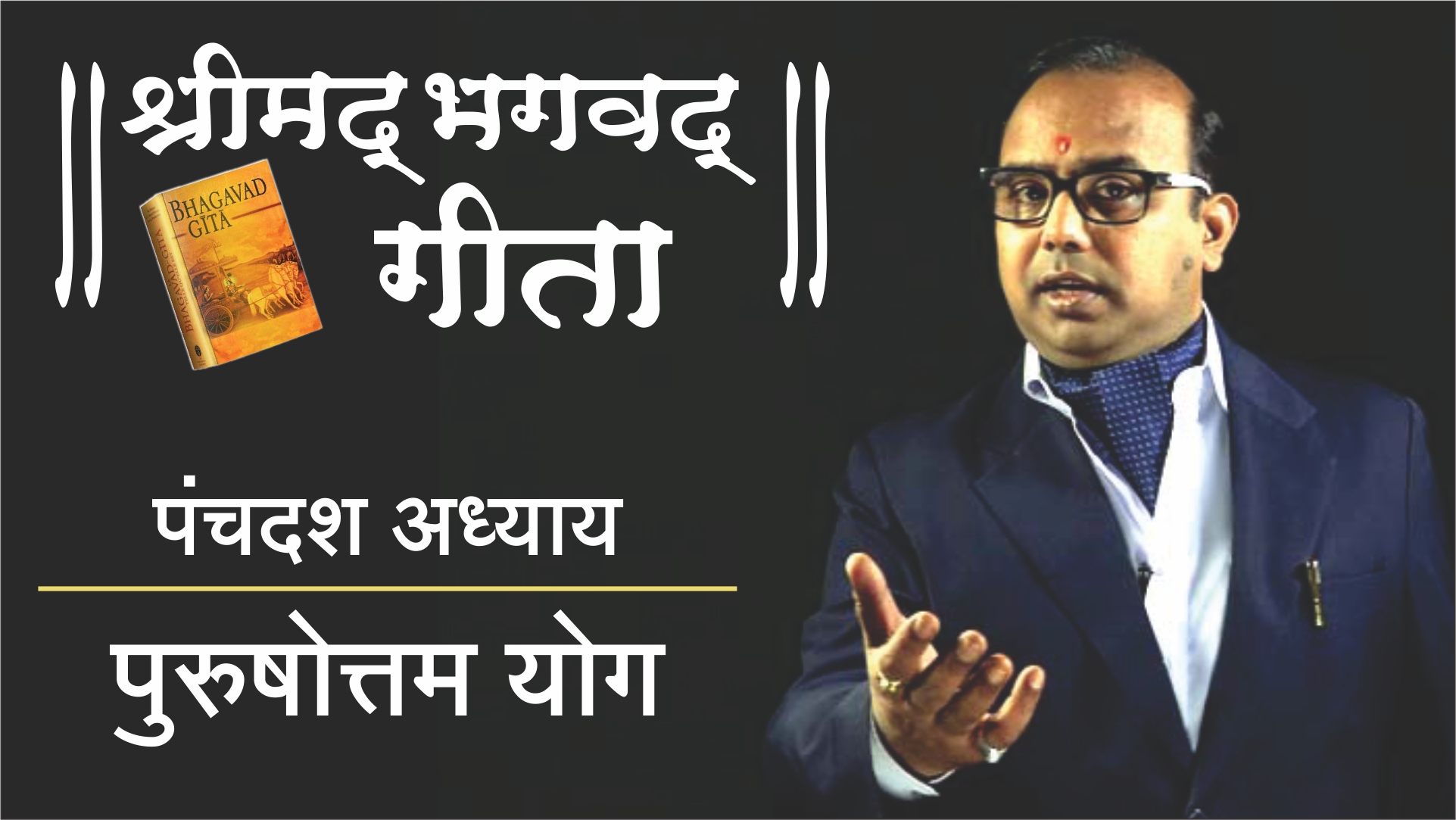
About Five thousand one hundred and fifty years ago this mesmerizing Bhagwad Geeta was sung forth to Arjuna by Shri Krishna in mere forty-five minutes. A human being is powerful and is incessantly through ages been on a quest for knowing the Unknown which is knowing the answer to “Who Am I?”
When Bhagwad Geeta was propounded five hundred seventy-four shlokas were spoken by Shri Krishna, eighty-five by Arjuna, Forty-one were spoken by Sanjaya and only one by Dhritarashtra.
The previous Chapter ended with a note that to worship God with undeviating love leads to liberation or “Moksha”. You must have experienced an enlightening feeling while going through the chapters with me. We discussed “Gunateet” person and Triguna, but such love is not possible without detachment from the world.
In this chapter, we shall go through the following ideas in accordance with the discourse of Shri Krishna with Arjuna.
- What do we understand by the words “Sansara” and “Vairagya”?
- What is “Jeevatma” and “Gyaan”?
- Who is “Parmatma” and “Bhagwaan”?
- What is the meaning of “Purush” and “Purushottam”?
Shri Krishna says that Arjuna you can consider the whole world as the Peepal tree which can be considered as the cosmic World tree, this discourse enables the listener or aspirant to develop a sense of detachment leading towards the true understanding and love for the God supreme as the cosmic energy and force.
This tree has roots above and branches below and is eternal and indestructible in nature. Consider this whole phenomenal world as this tree. Branches are “Yonia” and the leaves as “Vishaya” you will have to come in the world again and again but is you understand the tree you will move upwards, but to move towards your higher self, you will have to slay the branches of this eternal tree with the sword of knowledge. A tree is important in the life of a human, a man takes what the tree gives which is the life supporting Oxygen, however, the tree takes in the waste of human which is carbondioxide. But why does Shri Krishna take the reference of this Peepal tree, the reason is that this is a truly pious tree which gives the supply of Oxygen throughout the day for twenty-four hours.
The peepal tree has its branches upward and downward its spread: The flow of life in the individual is sometimes for a higher evolution but very often it is to gratify the animal nature i.e. towards a lower or a base purpose. Thus the tree of life has its branches growing both upwards and downwards.
Now, we come to “Vairagya” which is listening to our desires ie. Ahsanyog this means staying within limits and not giving unto desires. Manushya yoni is only Karmayoga in other Dev yoni and Neemn Yoni is obtained if you have done heinous work. The work is done in Manushya yoni the work you have done effects the afterlife of the being. But a mere understanding of these will not lead us towards Moksha but we have to move higher.
When death time approaches the “Sanskars” are imbibed onto the Atmas.We observe such people around us. Just like wind blowing takes the fragrance along with it, similarly, the Atma also carries the sanskaras along with it.
What is “Aatma” and what is “Jeevatma”? when the Atma enters the bodily abode it becomes the Jeevatama which is nothing but a part of the God.
This Jeevatma attracts six things towards itself.The Five “Gyan Indriya” and the Mind is attracted towards the Jeevatama.So they keep getting absorbed in the Jeevatama.
Shri Krishna goes onto explain Arjuna and the entire humanity certain conditions by following which one can obtain the Divine experience and live a life of superlative accomplishment.
- You have to free yourself from pride and delusion
- You have to conquer the evil of attachment.
- You will have to put your desires to rest and discourage the same. Such a desire free mind will become peaceful and serene.
- Be equanimous towards the extremities of life.
Shri Krishna says that his chapter contains the most profound knowledge, understanding of which leads to supreme enlightenment and a person need not know anything beyond this. A person through the knowledge of this discourse attains the knowledge of the purpose of human existence and goal of life. A person who obtains this knowledge becomes free from all human bonding and miseries of life.